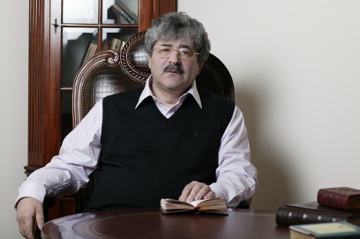
The new Secretary of Energy Ernest Moniz has not made much of an impression on the Senate Committee who approved his post. A Republican senator’s question on whether the new Secretary planned to develop or not the oil-bearing shelf in order to lift Europe's dependence on Russian oil has remained unanswered. Also Moniz dodged the question about the development of the huge reserves of natural gas in Alaska.
The impression given is that, despite the advances that have allowed the United States in the short term to approach energy independence and create the conditions for the export of domestic energy resources, the Secretary does not have a thought-out program for the energy development of the country.
A significant feature of the debate around the appointment of a new head of energy was the clear geo-politicization. As the newspaper The New York Times wrote: "If the Senate confirms the nomination of Ernest Moniz as the next Secretary of Energy, he has to use his new position to seriously review the energy situation not only in the U.S. but also in China."
Professor of physics at the Massachusetts Institute of Technology, Ernest Moniz had been Under Secretary of Energy under Bill Clinton. He is known for his views as an advocate of clean energy, especially nuclear and gas. At the same time, he is an advocate of shale gas, which U.S. ecologists are wary of. The main argument of the ecologists is that Moniz approaches will push back the development of alternative renewable energy sources for many years to come.
Defending their political protégé, the Democrats offer the environmentalists the chance to unite around a program of development of shale gas in China, which has reserves almost 50% larger than those in the United States.
In the spring of last year, in the report "The Future of Coal," Moniz and his co-authors were strongly in favor of strict control over the after effects of the consumption of coal in the world. Now Moniz has been invited to intervene in the energy situation in China in order to protect the global environment. With its vast resources of shale gas, China as the second largest economy in the world, can avoid the huge growth of greenhouse gas emissions from the burning of coal.
In fact, China has substantially increased the share of energy from coal consumption, increasing greenhouse gas emissions by 8-10% per year. By 2020, China will emit four times more greenhouse gases than the U.S. So a double challenge has been put before Moniz: to promote American shale gas technology and to ensure its environmental cleanliness. Obviously, by using the same American technology. In other words, the U.S. industry has to show that cleaner production can be profitable.
The active promotion of the U.S. in China’s energy market has political implications. If the former U.S. Secretary of State Hillary Clinton at the time stated the need to oust Russian energy resources from Europe, then the gas boom in China, provided by American technology, apparently, has to perform a similar task in relation to the supply of Russian gas and oil to the Chinese market.
However, the implementation of these plans raises many difficulties. It is unlikely that China will agree to an active U.S. role in the development of its energy resources – the "strategic caution" of Beijing to Washington is too high. In the U.S. the opposition to such plans will always be high, since any facilitation in the energy situation, much less a decline in their prices, can transform the second economy in the world in to the first.
From an environmental point of view the technology on which hydraulic fracturing is based, can lead to the fact that the gas wells poison groundwater. For China, which is experiencing an acute shortage of fresh water, especially in the North, such technologies are not acceptable. In addition, the production of shale gas results in a large release of methane, which is potentially more dangerous to global warming than all other known factors.
For this reason, Germany has refused to produce shale gas. In Poland, which has the most significant reserves of such gas in Europe, Exxon Mobil declared the gas wells to be unprofitable and abandoned their development. It is estimated that the introduction of "North Stream" and "South Stream" gas from Russia will in any case be cheaper and more reliable than the economic benefit from the development of shale gas in Europe.
Yet at the same time, Russia should seriously think about which path the global development and distribution of energy will take. Technological uncertainty may be short-lived.
It should be borne in mind that in China over the last few years there has been an impressive government program for the implementation and support of clean, "green" technologies. Such technology is still at the development stage in Russia. Today, they could become not only a means of protecting the environment in the Russian expanses, but also prove to be an important argument in the promotion of the economic interests of developing countries, not excluding China.<!--EndFragment-->
read more in our Telegram-channel https://t.me/The_International_Affairs

 14:00 29.04.2013 •
14:00 29.04.2013 •






















